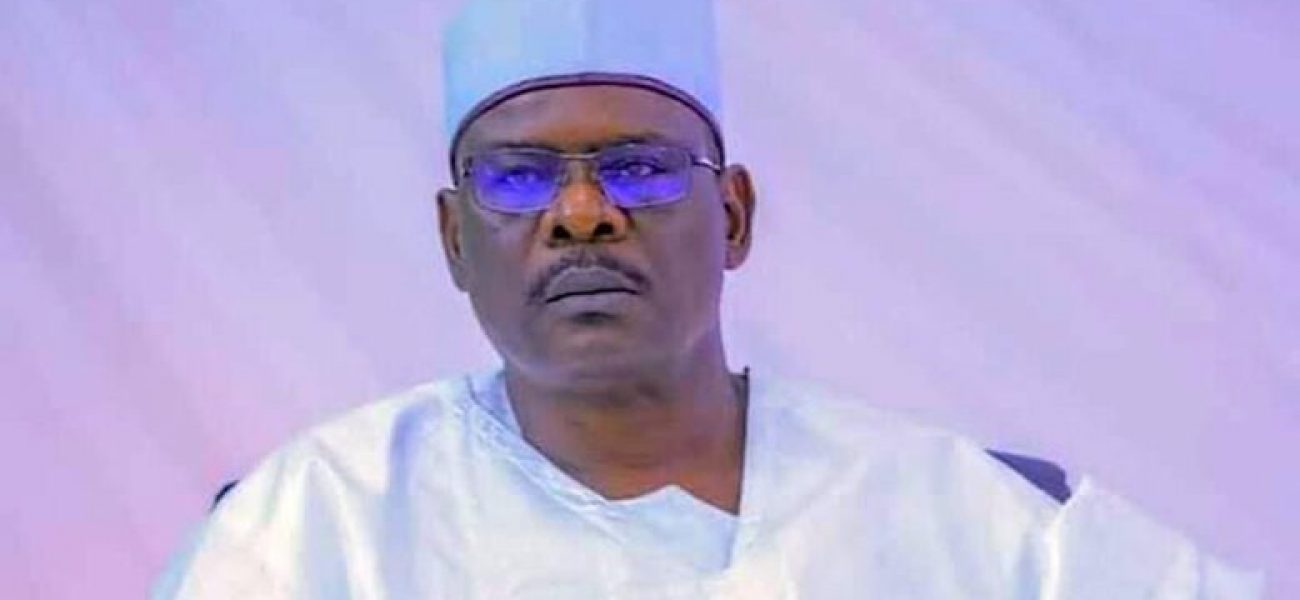On Wednesday 17th July 2024, the All Progressives Congress (APC) caucus of the Senate removed the Chief Whip of the Senate, Senator Ali Ndume (APC:Borno South) and replaced him with the Chairman of the Senate Committee on Judiciary, Human Rights & Legal Matters, Senator Mohammed Tahir Monguno (APC:Borno North).
Ndume’s removal followed from allegations of party disloyalty and critical comments he made against President Bola Ahmed Tinubu and his administration. A letter requesting his removal was written by the National Chairman of the party, Umar Ganduje and National Secretary, Senator Bashir Ajibola and read on the floor of the chamber by the President of the Senate, Senator Godswill Akpabio. The party leaders asked him to resign from the party and join either the People’s Democratic Party (PDP) or any other opposition party. The request for his removal was put to voice votes and approved by APC senators.
Senator Ndume was also removed from his deputy chairmanship position of the Senate Committee on Appropriation, and made Chairman of Committee on Tourism, which he has rejected, citing lack of experience over the committee’s mandate. An attempt was even made via motion, for him to face the Senate Committee on Code of Conduct, Ethics and Privileges, but this was killed.
This incident has been met with several reactions. For the opposition and many in the civic space, Ndume’s removal is an example of an action by a ruling party and administration that is intolerant of critical views. One that resorts to humiliation and intimidation to silence opposing voices.
His party members argue that he should have explored internal channels to offer his personal views on the administration instead of playing to the gallery and making what they see as derogatory remarks. However, it is not certain if Ndume already explored these channels and was met with silence. It is also unclear if the ruling party has mechanisms or channels where members can express their grievances. What is certain however is that the party and its representatives in the Senate will not hesitate to wield its stick over legislators who show public dissent.
The case of Senator Abdul Ningi is a prime example. Nigerians witnessed the spectacle that led to his suspension from the Senate after he made allegations of budget padding in the 2024 Appropriation Act. The Senate voted to have him suspended instead of calling for a thorough investigation into the matter. This further damaged the already poor image of the Senate as a rubber stamp of the executive.
In a strict sense, Party Whips are not expected to publicly go against the party they represent in Parliament. A Chief Whip has the job of enforcing party discipline and whipping members of the ruling party in line. In jurisdictions with a strong party system, Party Whips are enforcers of the party’s interests in parliament and sometimes go to great lengths to do so. Unfortunately, the Chief Whip in this case, has become the object of the whipping. The APC clearly felt that Ndume was not living up to his responsibility by asking for his removal and advising him to resign from the party.
It must be stated however that Ali Ndume is not afraid of courting controversy. He is known for being very outspoken, therefore his comments should have come as little surprise to anyone following his antecedents. It would be recalled that he supported the emergence of Bukola Saraki as Senate President in 2015 contrary to wishes of then President Buhari and the ruling party. He later fell out with the same Saraki which led him to lose his position as Senate Leader to Ahmed Lawan. The Ethics Committee in 2017 recommended that he be suspended for six months for repeating allegations of forgery of fake vehicle importation documents against Saraki and questioning Dino Melaye’s university certificate https://placng.org/i/senate-suspends-senator-ali-ndume/. Fast-forward to 2019, he ran for Senate President against Senator Lawan contrary to the party’s wishes but ended up losing to him.
Some may disagree with his position or disposition, but it cannot be said that he lacks a backbone. Moreover, Nigeria does not operate a system where legislators go against their judgement or conscience should it conflict with party policy or the dictates of the party leadership. Because legislators maintain a strong link to their constituents, it is expected that citizens’ interests come first. While he has a role as Chief Whip, Senator Ndume also represents a constituency – ordinary Nigerians, whose voices cannot be drowned in the quest to avoid rocking the boat with the leadership.
Many of the issues raised by Ndume go beyond mere disagreement with government policies. He raised serious concerns that cannot be waived away such as that of embezzlement of public resources in the midst of biting hunger, as well as the President not being accessible and his team having a closed-door policy that has alienated some of his Ministers and other party members in the National Assembly. These have serious implications for governance and should bother any well-meaning Nigerian.
While a political party reserves the right to choose its representatives or change its principal officers in the legislature, the National Assembly must take utmost care to protect its constitutional role and independence to ensure that the institution does not become a mockery of representative democracy. Tomorrow may yet be another legislator’s turn to face the big stick.

